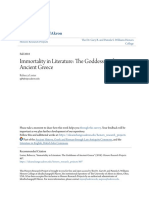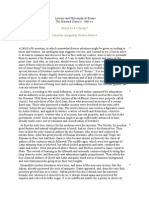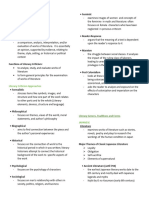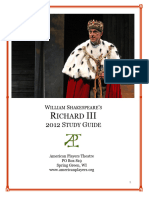Classicism:
Classicism is aesthetic attitudes and principles based on culture, art and literature
of ancient Greece and Rome, and characterized by emphasis on form, simplicity,
proportion, and restrained emotion.
Characteristics of Classicism are belief in reason, civilized, modern, sophisticated,
interest in urban society, human nature, love, satire, expression of acceptance,
moral truth, realism, belief in good and evil, religion, philosophy, generic
obstruction, impersonal objectivity, public themes, formal correctness, idea of
order.
Neo-classicism:
Neo-classicism was the trend prevailing during the late 18th and early 19th
centuries, characterized by the introduction and widespread use of Greek orders
and decorative motifs, the subordination of detail to simple, strongly geometric
overall compositions, the presence of light colors or shades, frequent shallowness
of relief in ornamental treatment of facades, and the absence of textural effects.
The period of Neo-Classicism relies heavily on mimicking Greek art. During the
time period, the concept of naturalism was a main concern. Artists especially made
great efforts to model the ways in which the ancients portrayed bodies and
emotions in their works of art.
Romanticism:
Romanticism emerged as a reaction against Neoclassicism. The Neoclassical age
emphasized on reason and logic. The Romantic period wanted to break away from
the traditions and conventions that were dear to the Neoclassical age and make
way for individuality and experimentation. One of the fundamentals of
Romanticism is the belief in the natural goodness of man, the idea that man in a
state of nature would behave well but is hindered by civilization.
Characteristics of Romanticism are belief in feelings, imagination, Intuition,
Primitive, Medieval, natural modes, rural solitude, aesthetic, spiritual, value of
external nature, love for vision, mysteriousness, idea, infinite, myth-making,
beauty, truth, faith in progress, belief in man and goodness, individual speculation,
revelation, concrete particulars, subjectivity, private themes, individual
expressiveness, intensity, curiosity, images, symbols, common language, self-
consciousness, romantic Hellenism.
Difference between Classicism and Romanticism
Romanticism emerged as a response to Classicism.
Classicism stressed on reason. Romanticism on imagination.
1
�Classicism follow the three unities of time , place and action. Romanticism only
follows the unity of action, but does not follow the unities of time, place.
Romanticism uses simple diction of common men from their everyday life.
Classicism uses strict, rigid and logical diction and theme.
Classicists thought of the world as having a rigid and stern structure, the
romanticists thought of the world as a place to express their ideas and believes.
Classicism was based on the idea that nature and human nature could be
understood by reason and thought. Classicist believed that nature was, a self-
contained machine, like a watch, whose laws of operation could be rationally
understood. Romanticists viewed nature as mysterious and ever changing.
Romantic writes believed that nature is an ever changing living organism, whose
laws we will never fully understand.
Classicists thought that it was literature's function to show the everyday values of
humanity and the laws of human existence. Their idea was that classicism upheld
tradition, often to the point of resisting change, because tradition seemed a reliable
testing ground for those laws. As for the Romantics, they wrote about how man
has no boundaries and endless possibilities. The Romantics stressed the human
potential for social progress and spiritual growth.
Classism
The definition of a classic piece of literature can be a hotly debated topic.
Depending on what you read or of the experience of the person you question on
the topic, you may receive a wide range of answers. However, there are some
tenets that the classics, in the context of books and literature, have in common.
Qualities of Classic Literature
To be generally agreed upon as a classic, works meet some common high
standards for quality, appeal, longevity, and influence.
A classic expresses artistic quality. It is an expression of life, truth, and beauty.
A classic piece of literature must be of high quality, at least for the time in which it
was written. Although different styles will come and go, a classic can be
appreciated for its construction and literary art. It may not be a bestseller today
due to pacing and dated language, but you can learn from it and be inspired by its
prose.
2
�A classic stands the test of time. The work is usually considered to be a
representation of the period in which it was written, and the work merits lasting
recognition. In other words, if the book was published in the recent past, the work
is not a classic. While the term modern classic may apply to books written after
World War II, they need longevity to achieve the designation of a simple "classic."
A book of recent vintage that is of high quality, acclaim, and influence needs a
few generations to determine whether it deserves to be called a classic.
A classic has a certain universal appeal. Great works of literature touch readers
to their very core beings, partly because they integrate themes that are understood
by readers from a wide range of backgrounds and levels of experience. Themes of
love, hate, death, life, and faith touch upon some of our most basic emotional
responses. You can read classics from Jane Austen and Miguel de Cervantes
Saavedra and relate to the characters and situations despite the intervening
centuries and changes in every aspect of life. In fact, a classic can alter your view
of history to see how little has changed in our basic human makeup.
A classic makes connections. You can study a classic and discover influences
from other writers and other great works of literature. Of course, this is partly
related to the universal appeal of a classic. But, the classic also is informed by the
history of ideas and literature, whether unconsciously or specifically worked into
the plot of the text. Likewise, a classic will inspire other writers who come
afterward, and you can trace how it influenced works in its own time and down
through the decades and centuries.
Classics have relevance to multiple generations of readers. By covering themes
universal to the human condition and doing so in a way that stands the test of time,
classics remain relevant. Because of the high quality of the characters, story, and
writing, people can read classics in their youth and gather an understanding of the
author's themes, and then they can read them later in life and see additional layers
of truth that they missed previously. The quality enables the work's ability to
communicate to multiple age groups and through time.
Using Classic Literature
These qualities of classic literature make them appropriate for study. While
younger students may find them less accessible, older students and adults can be
enlightened by reading them as part of a formal study, book club, or ongoing
reading. To introduce younger readers to the classics, use graphic novel versions,
editions simplified for younger readers, or movie adaptations.
3
�For older students of literature, classics have a wide variety of expert information
available about them, giving background, such as how and why they were written;
analysis of the text; and comments on lasting cultural impact. Classics likely also
have study guides that can assist learners in their basic understanding of the text,
such as by explaining dated terms and references and providing study questions.
***************
Greek Literature: has influenced not only its Roman neighbors to the west but
also countless generations across the European continent. Greek writers are
responsible for the introduction of such genres as poetry, tragedy, comedy, and
western philosophy to the world. These Greeks authors were born not only on the
soil of their native Greece but also in Asia Minor (Ionia), the islands of
the Aegean, Sicily, and southern Italy.
Themes
The Greeks were a passionate people, and this zeal can be seen in their literature.
They had a rich history of both war and peace, leaving an indelible imprint on the
culture and people. Author and historian Edith Hamilton believed that the spirit of
life abounds throughout Greek history. In her The Greek Way she wrote,
Greek literature is not done in gray or with a low palette. It is all black and shining
white or black and scarlet and gold. The Greeks were keenly aware, terribly
aware, of life’s uncertainty and the imminence of death. Over and over again they
emphasize the brevity and the failure of all human endeavor, the swift passing of
all that is beautiful and joyful. [...] Joy and sorrow, exultation and tragedy, stand
hand in hand in Greek literature, but there is no contradiction involved thereby.
(26)
To fully understand and appreciate Greek literature one must separate it, divide the
oral epics from the tragedies and comedies as well as the histories from the
philosophies. Greek literature can also be divided into distinct periods: Archaic,
Classical, and Hellenistic. The literature of the Archaic era mostly centered on
myth; part history and part folklore. Homer’s epics of the Iliad and
the Odyssey and Hesiod’s Theogony are significant examples of this period.
Literary Greece begins with Homer. Since writing had not yet arrived in Greece,
much of what was created in this period was communicated orally, only to be put
in written form years later.
The Classical era (4th and 5th centuries BCE) centered on the tragedies of such
writers as Sophocles and his Oedipus Rex, Euripides’s Hippolytus, and the
4
�comedies of Aristophanes. Lastly, the final period, the Hellenistic era, saw Greek
poetry, prose, and culture expand across the Mediterranean influencing such
Roman writers as Horace, Ovid, and Virgil. Unfortunately, with only a few
exceptions, much of what was created during the Archaic and Classical period
remains only in fragments.
Archaic Period
During the Archaic period, the poets’ works were spoken - an outcome of an oral
tradition - delivered at festivals. A product of Greece’s Dark Ages, Homer’s epic
the Iliad centered on the last days of the Trojan War, a war initiated by the love
of a beautiful woman, Helen. It brought an array of heroes such as Achilles,
Hector, and Paris to generations of Greek youth. It was a poem of contrasts: gods
and mortals, divine and human, war and peace. Alexander the Great slept with a
copy of the book under his pillow and even believed he was related to Achilles.
Homer’s second work, the Odyssey, revolved around the ten-year “odyssey” of the
Trojan War hero Odysseus and his attempt to return home. While most classicists
and historians accept that Homer actually lived, there are some who propose his
epics are the result of more than one author. Whether his or not, Homer’s works
would one day greatly influence the Roman author Virgil and his Aeneid. After
Homer, lyric poetry - poetry to be sung - came into its own.
Lastly, one of the few female lyric poets of the period was Sappho, often called
the tenth Muse. Born on the Aegean island of Lesbos, her poems were hymns to
the gods and influenced such Romans poets as Horace, Catullus, and Ovid. Much
of her poetry remains in fragments or quoted in the works of others.
Classical Period
Oral recitation of poetry, as well as lyric poetry, morphed into drama. The purpose
of drama was to not only entertain but also to educate the Greek citizen, to explore
a problem. Plays were performed in outdoor theaters and were usually part of a
religious festival. Along with a chorus of singers to explain the action, there were
actors, often three, who wore masks. Of the known Greek tragedians, there are
only three for whom there are complete plays: Aeschylus, Sophocles, and
Euripides. Oddly, these are considered among the great tragic writers of the world.
Hamilton wrote:
5
�The great tragic artists of the world are four, and three of them are Greek. It is in
tragedy that the pre-eminence of the Greeks can be seen most clearly. Except for
Shakespeare, the great three, Aeschylus, Sophocles, and Euripides stand alone.
Tragedy is an achievement peculiarly Greek. They were the first to perceive it and
they lifted it to its supreme height. (171)
Aeschylus (c. 525 – c. 456 BCE) was the earliest of the three. Born
in Eleusis around 525/4 BCE, he fought at the Battle of Marathon against the
Persian invaders. His first play was performed in 499 BCE. His surviving works
include Persians, Seven Against Thebes, Suppliants (a play that beat out
Sophocles in a competition), Prometheus Bound, Oresteia. Part of
the Oresteia trilogy, his most famous work was probably Agamemnon, a play
centering on the return of the Trojan War commander to his wife Clytemnestra,
who would eventually kill him. After killing her husband she showed little
remorse, she said
This duty is no concern of yours.
He fell by my hand,
by my hand he died, and by my hand
he will be buried, and nobody
in the house will weep. (99)
Most of Aeschylus’s plays were centered on Greek myth, portraying the suffering
of man and the justice of the gods. His works were among the first to have a
dialogue between the play’s characters.
Sophocles (c. 496 – c. 406 BCE) was the second of the great tragic playwrights.
Of his 120 plays performed in competition, only 20 were victorious, losing far too
many to Aeschylus. Only three of his seven surviving plays are complete. His
most famous work, part of a trilogy, is Oedipus Rex or Oedipus the King, a play
written 16 years after first of the three, Antigone, a play about Oedipus’ daughter.
The third in the series was Oedipus at Colonus, relaying the final days of the
blinded king. The tragedy of Oedipus centered on a prophecy that foretold of a
man who would kill the king (his father) and marry the queen (his mother).
Unknowingly, that man was Oedipus. However, the tragedy of the play is not that
he killed his father and married his mother but that he found out about it; it was an
exploration of the tragic character of a now blinded hero.
The third great author of Greek tragedy was Euripides, an Athenian (c. 484 - 407
BCE). Unfortunately, his plays - often based on myth - were not very successful at
6
�the competitions; his critics often believe he was bitter about these losses. He was
the author of 90 plays, among which are Hippolytus, Trojan Women, and Orestes.
Euripides was known for introducing a second act to his plays, which were
concerned with kings and rulers as well as disputes and dilemmas. He died shortly
after traveling to Macedon where he was to write a play about the king’s
coronation. His play Medea speaks of a bitter woman who took revenge against
her lover by killing her children. In pain Medea screams:
O great Thesis and lady Artemis, do you see what I suffer, though I bound my
accursed husband by weighty oaths? How I wish I might see him and his bride in
utter ruin, house and all, for the wrongs they dare to inflict on me who never did
them harm. (55)
Another playwright of the era was the Athenian author of Greek comedy,
Aristophanes (c. 450? – c. 386 BCE). Author of Old Comedy, his plays were
satires of public persons and affairs as well as candid political criticisms. Eleven
of Aristophanes’ plays have survived along with 32 titles and fragments of others.
His plays include Knights, Lysistrata, Thesmophoriazusae, The Frogs, and The
Clouds, a play that ridiculed the philosopher Socrates as a corrupt teacher of
rhetoric. His actors often wore grotesque masks and told obscene jokes. Many of
his plays had a moral or social lesson, poking fun at the literary and social life
of Athens.
Greek philosophers & Historians
Among the major contributors to Greek literature were the philosophers, among
them Plato, Aristotle, Epictetus, and Epicurus. One of the most influential
Greek philosophers was Plato (427 – 347 BCE). As a student of Socrates, Plato’s
early works were a tribute to the life and death of his teacher: Apology, Crito,
and Phaedo. He also wrote Symposium, a series of speeches at a dinner party.
However, his most famous work was The Republic, a book on the nature and value
of justice.
His student, Aristotle (384 – 322 CE), disagreed with Plato on several issues,
mainly the concept of empiricism, the idea that a person could rely on his/her
senses for information. His many works include Nichomachean Ethics (a treatise
on ethics and morality), Physics, and Poetics. He was the creator of the syllogism
and a teacher of Alexander the Great.
7
�A final group of contributors to ancient Greek literature are the
historians: Herodotus, Thucydides, and Polybius. Both Herodotus (484 – 425
BCE) and Thucydides (460 – 400 BCE) wrote around the time of the
Peloponnesian Wars. Although little is known of his early life, Herodotus wrote on
both the wars between Athens and neighboring Sparta as well as the Persian
Wars. During his lifetime, his home of Halicarnassus in western Asia Minor was
under Persian control. Although he is often criticized for factual errors, his
accounts relied on earlier works and documents. His narratives demonstrate an
understanding of the human experience and unlike previous writers, he did not
judge. He traveled extensively, even to Egypt.
His contemporary, Thucydides, was the author, although incomplete, of a History
of the Peloponnesian War. Part of his history was written as it happened and
looked at both long-range and short-range causes of the war. His massive
unfinished work would be completed by such Greek authors as Xenophon and
Cratippus.
Hellenistic Period
The Hellenistic period produced its share of poets, prose writers, and historians.
Among them were Callimachus, his student Theocritus, Apollonius Rhodius, and
the highly respected historian Plutarch. Unfortunately, like the previous eras,
much of what was written remains only in fragments or quoted in the works of
others.
The poet Callimachus (310 – 240 BCE) was originally from Cyrene but migrated
to Egypt and spent most of his life in Alexandria, serving as a librarian under both
Ptolemy II and III. Of his over 800 books, 6 hymns, and 60 epigrams, only
fragments remain. His most famous work was Aetia (Causes), which revealed his
fascination for the great Greek past, concentrating on many of the ancient myths as
well as the old cults and festivals. His work heavily influenced the poetry of
Catullus and Ovid’s Metamorphoses.
His pupil Theocritus (315 – 250 BCE) originally from Syracuse also worked in
the library at Alexandria, producing a number of works of which only 30 poems
and 24 epigrams exist. He is said to be the originator of pastoral poetry. Like his
teacher, his work influenced future Roman authors such as Ovid.
Apollonius Rhodius (born c. 295 BCE) was, like the others, from Alexandria,
serving as both a librarian and tutor. Historians are unsure of the origin of the
8
�“Rhodius” attached to his name; some assume he lived for a time in Rhodes. His
major work was the four books of the Argonautica, a retelling of the story of
Jason's travels to retrieve the fabled Golden Fleece. And, like Callimachus and
Theocritus, his work influenced Catullus and Virgil.
Besides poetry and prose, the best-known playwright of the era, the Athenian
Menander (342 – 290 BCE), must be mentioned. Menander was a student of
philosophy and leading proponent of New Comedy, authoring over 100 plays,
including Dyscolus, Perikeiromene, and Epitrepontes. He was the master of
suspense. His plays were later adapted by the Roman authors Plautus and
Terence.
The Hellenistic world produced a few notable historians, too. Polybius (200 -118
BCE) was a Greek who wrote on Rome’s rise to power. Denounced as too
friendly to Rome, he was a proponent of Greek culture in Rome. Of his Histories,
only the first five books remain of the 40 written.
Lastly, Plutarch (born c. 45 BCE) was one of the most famous of the Greek
historians. Originally from Chaeronea, he was a philosopher, teacher, and
biographer. Although he spent time in Egypt and Rome (where he taught
philosophy), he spent most of his life in his home city. Later in life, he served as a
priest at the oracle at Delphi. His most famous work Parallel Lives provided
biographies of Roman statesmen as well as such Greeks as Alexander,
Lycurgus, Themistocles, and Pericles. Unlike other histories, he chose not to
write a continuous history but concentrated on the personal character of each
individual. He also wrote on ethical, religious, political, and literary topics of the
day.
Legacy
After the death of Alexander the Great and the growth of Hellenistic culture across
the Mediterranean, Roman literature and art had a distinctive Greek flavor.
Greek literature had risen from the oral tradition of Homer and Hesiod through the
plays of Sophocles and Aristophanes and now lay on the tables of Roman citizens
and authors. This literature included the philosophy of Plato and Aristotle and the
histories of Herodotus and Thucydides. Centuries of poetry and prose have come
down through the generations, influencing the Romans as well as countless others
across Europe. Referring to the “fire” of Greek poetry, Edith Hamilton wrote,
"One might quote all the Greek poems there are, even when they are tragedies.
Every one of them shows the fire of life burning high. Never a Greek poet that did
not warm both hands at that flame." (26) Today, libraries both public and private
9
�contain the works of those ancient Greeks. And, countless future generations will
be able to read and enjoy the beauty of Greek literature.
10






















































































